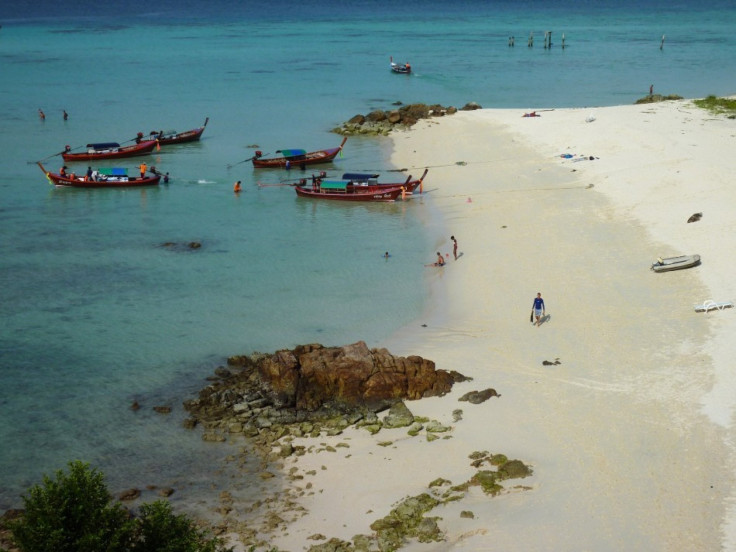Thailand’s ‘Tourist Courts’ Would Fast-Track Crimes Against (And By) Foreigners

A series of high-profile crimes against foreigners over the last year left many wondering if Thailand had squandered its postcard-perfect assets by failing to protect its visitors. Now, the popular resort island of Phuket, scene of many of those crimes, has come up with a solution: “tourist courts.”
The idea, which could also be adopted in Bangkok and Pattaya, is not for a separate court, but rather a new process whereby authorities would fast-track cases involving tourists.
Visitors are often forced to wait weeks or even months for justice under the slow Thai judicial system. While some are suspected criminals, many more find themselves on the other side of the law as victims, deciding whether or not to stay in the country to nail a criminal or simply go home on schedule, potentially allowing the criminal to walk free.
“Tourists who are the victims of thefts and robberies may have to face a lengthy trail and experience inconvenience because they only intended to stay in the country for a short time,” Tourism Minister Somsak Pureesrisak explained in an announcement last week.
Somsak said he had discussed the issue with officials from the Court of Justice, who agreed hearings involving tourists could be expedited by setting up a tourism litigation division and extending office hours, according to local reports.
A columnist at the Phuket Gazette said the idea of tourist courts “raises some interesting issues,” but believed the proposal was unlikely to get off the ground:
“The main reason that a tourist court will never happen is simple: bureaucratic inertia. It is easy for the Tourism and Sports Minister to say that having one would be nice, but getting monolithic institutions like the Justice Ministry and Royal Thai Police to take action without any real economic inducements seems unlikely indeed. For this reason, we will place the tourism court in the same file with so many other tourism-related pie-in-the-sky projects that have never come to fruition.”
Phuket Provincial Police Commander Choti Chavalviwat, meanwhile, questioned the government’s priorities.
“I would prefer more effort be put into preventing crime, such as by installing more CCTV cameras across Phuket, which would help police to catch bad men faster and would reduce the already heavy workload on judges at the court,” he told the Gazette.
Chavalviwat called for 5,000 more police officers to help protect tourists in Phuket earlier this year after the government released new crime figures for the island revealing that seven foreigners had been murdered since 2010. Thirteen others were victims of violent crimes during that time, including rape.
A rash of violence nationwide over the last 12 months reignited a debate over gun control. A senator “accidentally” shot his secretary with an Uzi submachine gun at a dinner in October, just one month before a “Gangnam Style” dance-off deteriorated into a violent shootout between two rival gangs.
Thailand has the highest gun ownership rate in all of Asia with 15.6 guns per 100 people. That figure puts it well ahead of Pakistan, the next closest nation in the region with 11.6 guns per 100 residents. Thailand’s Justice Ministry believes the number of young people carrying guns has increased 32 percent over the past nine years.
But guns are just a part of the problem when it comes to tourists. Two Canadian sisters were found dead in their bungalow in the Phi Phi Islands last June, believed poisoned. A week later, an Australian travel agent on an industry tour was stabbed to death in a bag-snatch gone wrong in Phuket. More recently, two Russian women were abducted, robbed and raped in Pattaya on Christmas Day, and four Thai men gang-raped a British student in Nakhon Sri Thammarat in February.
With Myanmar opening up and tourism to Vietnam soaring, Thailand faces more regional competition than ever. If the headline-making deaths continue in the coming year and the country doesn’t come up with a solution, visitors may begin to look elsewhere for the peace and tranquility that was once the hallmark of a trip to “The Land of Smiles.”
© Copyright IBTimes 2025. All rights reserved.






















